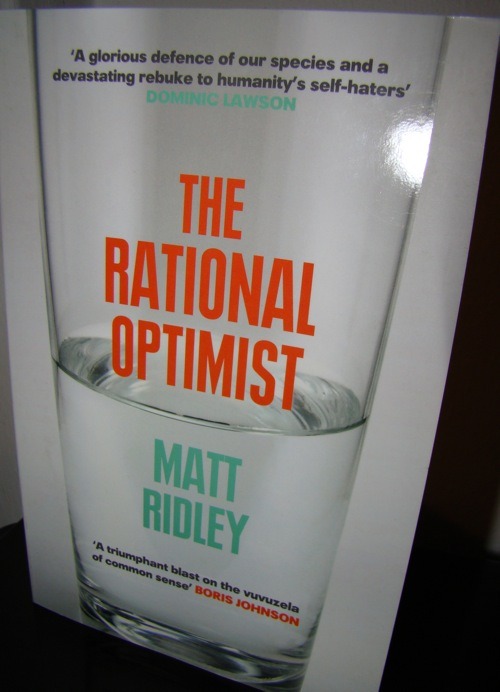
A better title, but less appealing one, would probably be A history of markets. Matt Ridley tells us about the economic history from the beginning human kind till today. How does it come, that we build cities, have markets for food, internet services or books and can communicate easily over thousands of miles. How come that other creatures can’t do this? Ridley begins about 500,000 years ago where some humans haven’t just traded equal things but rather unequal things. We can see, for example, for some races of apes that clean themselves mutually. But they don’t exchange cleaning for food. When this began, the humans could specialize. We know that specialization leads to efficiencies and surplus.
This was the beginning of our modern history. It was the first time humans really advanced. Ridley states that for millions of years the design of axes haven’t changed, because nobody had the possibility to invest time in trying better design and doing everything else, only specialization allowed that. The next thing is exchanging ideas. He tells about a tribe which knew how to build boats and lived in isolation. Some generations, nobody knew how to build boats and they switched back into more primitive technology. That is, without the exchange of ideas, technology will be lost.
The next big thing were traders. For the first time, people haven’t produced but rather solely transported goods and traded it with others. Why is this so important? The traders not only transported goods, the transported ideas. The bought ideas from India to Europe and vice versa. Furthermore, they often lead to building of cities which were often later destroyed by people obsessed with power.
So we have specialization, exchange of ideas and traders. What happened in these centuries where our progress seems to stop or even shrink. The same that happened to the tribe with their boat. States decided to become nationalistic and to close their boarders. This stopped trade and with it the exchange of ideas and for some part specialization. Furthermore, this lead to decreasing specialization and people moved back to rural areas and became farmers again.
The last part talks about the Malthusian fallacy which hasn’t happened but could if we move back to more primitive technologies, nationalization or generalization. If you haven’t informed you about the last 100 – 200 years of economic history, this part is pretty interesting.
In conclusion, I really liked The Rational Optimist. Matt Ridley took lots of time for researching this topic and introduces you to economic history. If you are interested in this, this book is a great choice.